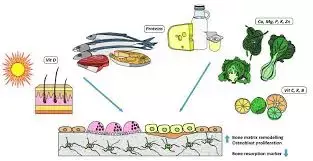- Home
- Medical news & Guidelines
- Anesthesiology
- Cardiology and CTVS
- Critical Care
- Dentistry
- Dermatology
- Diabetes and Endocrinology
- ENT
- Gastroenterology
- Medicine
- Nephrology
- Neurology
- Obstretics-Gynaecology
- Oncology
- Ophthalmology
- Orthopaedics
- Pediatrics-Neonatology
- Psychiatry
- Pulmonology
- Radiology
- Surgery
- Urology
- Laboratory Medicine
- Diet
- Nursing
- Paramedical
- Physiotherapy
- Health news
- Fact Check
- Bone Health Fact Check
- Brain Health Fact Check
- Cancer Related Fact Check
- Child Care Fact Check
- Dental and oral health fact check
- Diabetes and metabolic health fact check
- Diet and Nutrition Fact Check
- Eye and ENT Care Fact Check
- Fitness fact check
- Gut health fact check
- Heart health fact check
- Kidney health fact check
- Medical education fact check
- Men's health fact check
- Respiratory fact check
- Skin and hair care fact check
- Vaccine and Immunization fact check
- Women's health fact check
- AYUSH
- State News
- Andaman and Nicobar Islands
- Andhra Pradesh
- Arunachal Pradesh
- Assam
- Bihar
- Chandigarh
- Chattisgarh
- Dadra and Nagar Haveli
- Daman and Diu
- Delhi
- Goa
- Gujarat
- Haryana
- Himachal Pradesh
- Jammu & Kashmir
- Jharkhand
- Karnataka
- Kerala
- Ladakh
- Lakshadweep
- Madhya Pradesh
- Maharashtra
- Manipur
- Meghalaya
- Mizoram
- Nagaland
- Odisha
- Puducherry
- Punjab
- Rajasthan
- Sikkim
- Tamil Nadu
- Telangana
- Tripura
- Uttar Pradesh
- Uttrakhand
- West Bengal
- Medical Education
- Industry
increased intake of dietary folate intake linked to decreased risk of osteoporosis, suggests study

A study published in Musculoskeletal Disorders suggests that increased intake of dietary folate was linked to decreased risk of osteoporosis. In the instant study a nonlinear dose-response relationship was noted, emphasizing the potential of folate in osteoporosis prevention.
However, the association between dietary folate intake and the risk of osteoporosis in the general population remains incompletely understood. Therefore,the researchers conducted the study that aimed to determine the association between dietary folate intake and the risk of osteoporosis in the general population of the USA. In this cross-sectional study, data from the National Health and Nutrition Examination Survey (2017-2020) were collected. Osteoporosis was considered to be indicated by a bone mineral density greater than 2.5 standard deviations below the mean of the young adult reference group. Dietary folate intake was measured by a 24-hour dietary recall. Multivariate logistic regression models and restricted cubic spline models were used. Results: The study included 2297 participants (mean age: 63.69 ± 0.35 years), 49.92% of whom were female. In the general population, increased dietary folate intake was directly associated with a decreased risk of osteoporosis (P for trend = 0.005). In the age > 60 years and female subgroups, folate intake was inversely associated with the risk of osteoporosis (P for trend < 0.001). The dose‒response curve suggested that this association was nonlinear (P for nonlinearity = 0.015).
The cross-sectional study provides initial insights into the inverse association between dietary folate intake and the risk of osteoporosis in the general U.S.
Reference:
Zhou L, Deng W, Wu Q, Pan Y, Huang H. Association between dietary folate intake and the risk of osteoporosis in adults: a cross-sectional study. BMC Musculoskelet Disord. 2024 Jun 22;25(1):487. doi: 10.1186/s12891-024-07605-9. PMID: 38909178; PMCID: PMC11193181
Dr. Shravani Dali has completed her BDS from Pravara institute of medical sciences, loni. Following which she extensively worked in the healthcare sector for 2+ years. She has been actively involved in writing blogs in field of health and wellness. Currently she is pursuing her Masters of public health-health administration from Tata institute of social sciences. She can be contacted at editorial@medicaldialogues.in.
Dr Kamal Kant Kohli-MBBS, DTCD- a chest specialist with more than 30 years of practice and a flair for writing clinical articles, Dr Kamal Kant Kohli joined Medical Dialogues as a Chief Editor of Medical News. Besides writing articles, as an editor, he proofreads and verifies all the medical content published on Medical Dialogues including those coming from journals, studies,medical conferences,guidelines etc. Email: drkohli@medicaldialogues.in. Contact no. 011-43720751


